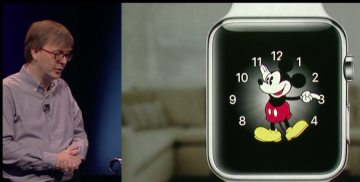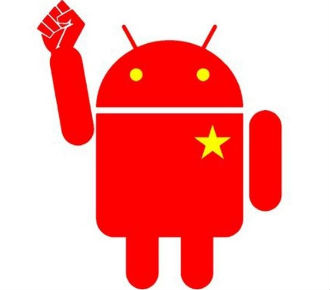 Apple’s favourite news agency, Reuters, which normally churns out free adverts for Jobs’s Mob pretending it is news, has had to admit that no one is really interested in the iWatch.
Apple’s favourite news agency, Reuters, which normally churns out free adverts for Jobs’s Mob pretending it is news, has had to admit that no one is really interested in the iWatch.
The normally Apple friendly reporters thought that they were onto a winner when they commissioned a poll which was expected to say that everyone in the US wanted to buy one of Apple’s shiny new toys. After all, wouldn’t everyone agree that Apple had created a game changer?
The problem was that when he numbers came in, the report said the opposite and that Americans were spurning the Apple Watch as if it were a rabid dog.
Apparently more than 69 percent of Americans they are not interested in buying the gadget and would rather spend their cash on something more useful.
Reuters did its best to put some spin on the news, claiming that the survey also showed limited awareness of the watch.
The poll was taken after Apple Chief Executive Tim Cook rolled out the product on Monday, and only about half of respondents said they had heard news of the timepiece in the last few days.
However given that the watch has had two years free marketing bordering on hysteria, one has to question which planet those surveyed had been on. That suggestion also does not make much sense when you consider that most of those asked, thought the watch was a passing fad.
Ipsos surveyed 1,245 Americans online between March 9 and March 13. The data was weighted to reflect the U.S. population and has a credibility interval of plus or minus 3.2 percentage points.
One-quarter of respondents said they were interested in purchasing the Apple Watch, but 69 percent said they had no desire, and six percent said they were unsure.
Initial demand for the watch is expected to come primarily from existing iPhone users, but its wider success is seen depending on whether developers create enticing apps tailored to the device, so-called killer apps.
Some 46 percent of respondents said that the Apple Watch had a “cool factor.” But only 29 percent said they were more interested in purchasing an Apple Watch than another brand of smartwatch.
Analysts expect that Apple will sell between 10 million and 32 million watches in 2015, which would probably account for those Apple fans who buy anything the company produces. Although we doubt it will even do that well. The watch is two years behind others on the market, and does much less than expected.
 The Chinese government seems to believe that if its citizens read Reuters websites their minds will be totally corrupted.
The Chinese government seems to believe that if its citizens read Reuters websites their minds will be totally corrupted.








